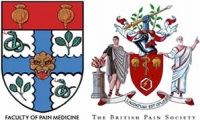Biopsychosocial Model in Pain Management course for Allied Health



This session explains why the biopsychosocial model is more suited to the management of chronic pain than acute pain.
Learning Objectives
By the end of this session you will be able to:
- Identify the factors that lead to pain and suffering
- Recognize the interaction of mood and chronic pain
The biopsychosocial model has evolved as a way to characterize all of the aspects of the complex problem of chronic pain.
Patients with long-term pain conditions frequently have psychosocial and behavioural components in addition to their physical symptoms.
Robin Correa is a Consultant in Pain Management and Anaesthesia at the University Hospitals Coventry and Warwickshire NHS Trust.
Robin is also an examiner for the Final FRCA and has a special interest in medical education.
He is a content author for both the e-LA and e-PAIN projects.

- Person-centred Dementia Care for Allied Health
- Posted By eIntegrity Healthcare e-Learning
- Posted Date: 2024-11-07
- Location:Online
- This session will help you to understand that person-centred dementia care involves: Respectin...
- Personality Disorders course for Allied Health
- Posted By eIntegrity Healthcare e-Learning
- Posted Date: 2024-11-06
- Location:Online
- This session discusses the concept of personality disorders, and considers some of the commonest pre...
- Self-harm course for Allied Health
- Posted By eIntegrity Healthcare e-Learning
- Posted Date: 2024-11-06
- Location:Online
- This session defines self-harm, considers some of the myths surrounding people who self-harm and dis...
- Psychological Therapies for Common Mental Health P...
- Posted By eIntegrity Healthcare e-Learning
- Posted Date: 2024-11-06
- Location:Online
- This session considers some of the psychological therapies that are available for adults and why the...
- Medically Unexplained Symptoms course for Allied H...
- Posted By eIntegrity Healthcare e-Learning
- Posted Date: 2024-11-06
- Location:Online
- This session aims to explain what medically unexplained symptoms (MUS) are and how best to help pati...







